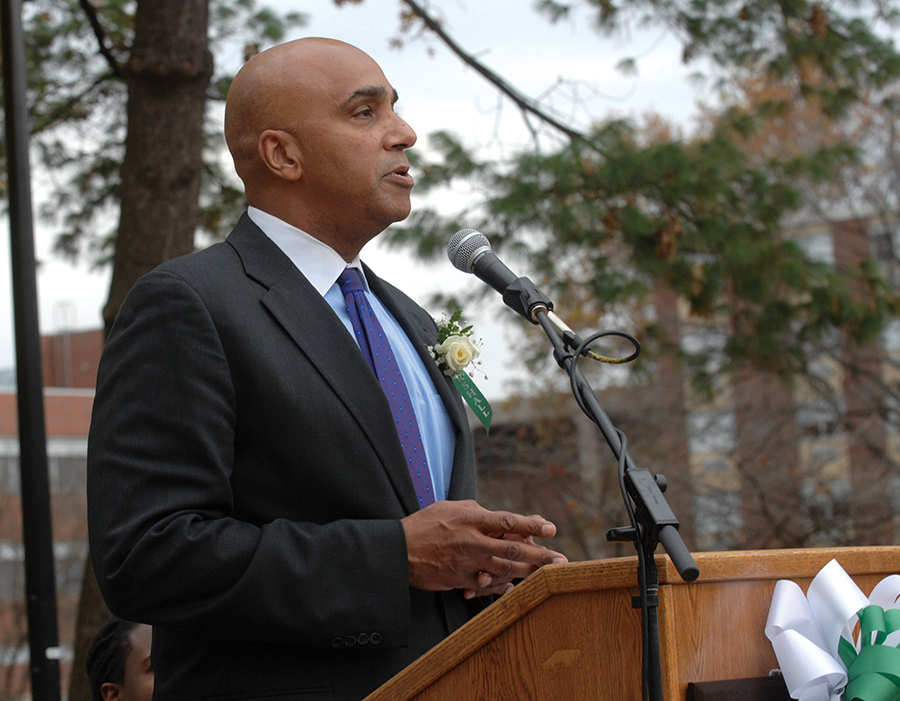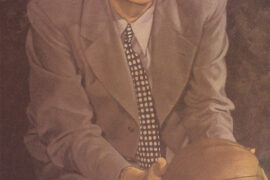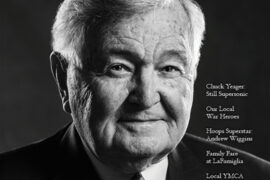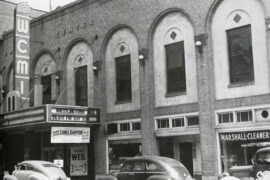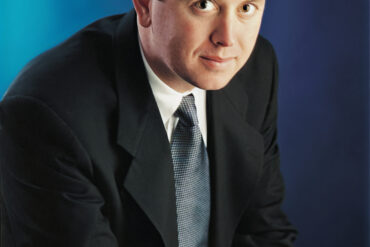Meet two national newsmen who were launched from the same Huntington pad.
By Carter Taylor Seaton
Photos courtesy of NBC & CNN
HQ 72 | WINTER 2010
“From New Orleans, this is Sean Callebs, CNN.” “From Capitol Hill, I’m Joe Johns, CNN.” Over the years, you’ve probably heard these sign-offs without knowing that the two highly respected broadcasters share a similar beginning here in Huntington. Both graduated from the W. Page Pitt School of Journalism and Mass Communications at Marshall University – Johns in 1980 and Callebs in 1983 – and former WSAZ news director Bob Brunner was the first to recognize their talent and hire them.
Pennsylvania native Sean Callebs grew up in Huntington from age 5, when his father came to work at Marshall University. Young Callebs entered Marshall to study magazine journalism, but WSAZ anchor Bos Johnson talked him into majoring in broadcasting. By the time Callebs graduated from Marshall, he was already working for WSAZ NewsChannel 3. According to Brunner, Callebs started in production, but after he expressed an interest in news, Brunner brought him into the newsroom. Back then, no one had a special beat.
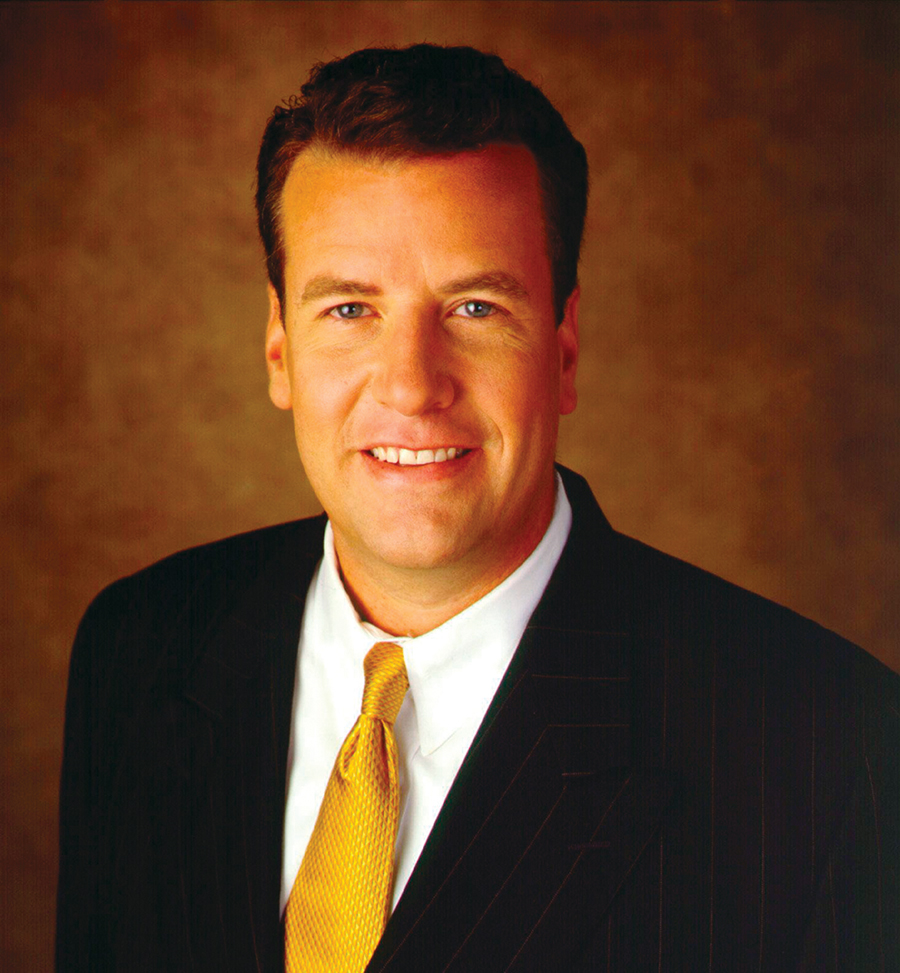
“Everybody grabbed a camera,” says Brunner, “and whatever was blowing up, breaking down or burning that day, we covered it.”
That experience held Callebs in good stead as his career advanced. A year later, he moved to another NBC affiliate in Columbia, S.C., where he anchored on weekends and reported three days a week from 1984 to 1989.
In 1989, Callebs – who considers himself a writer first and foremost – was considering leaving the industry altogether when a former intern, then a writer at CNN, suggested Callebs come interview there. He did, and CNN hired him as a writer, too.

When the Gulf War broke out in 1991, Callebs began filling in for domestic reporters who had been sent overseas. Soon he was a full-time reporter covering some of the most important stories of the time: the fall of the Berlin Wall, the massive earthquake in California, the fall of Noriega in Panama, the arrest of Nicolae Cecesceau in Romania and the fall of communism. Callebs says he was honored to participate in covering these major events.
“I could not have picked a better time to go to a world news leader,” he says.
For the next 20 years, the job put Callebs in the middle of major national and international events and took him globe-hopping to 12 or 15 countries and to every state but one. When he was assigned to the Denver news bureau, he traveled more than 200 days a year.
“As I tell my kids when they point to my gray hair, it’s not the age; it’s the mileage,” he says, laughing.
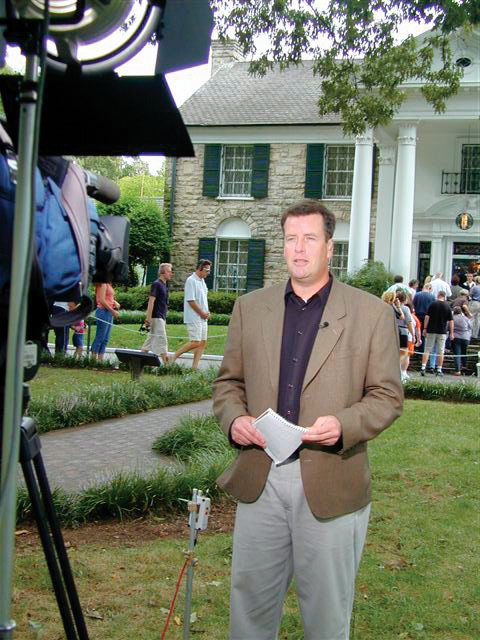
Although he describes his job as fun, Callebs grows serious when he speaks of covering stories as devastating as the Space Shuttle Columbia tragedy, the 9/11 attacks, the shootings at Columbine, Hurricane Katrina and the Oklahoma City bombing – after which he conducted an exclusive interview with co-conspirator Michael Fortier.
“Those are rough,” he says. “You have to have a filter or else they’ll just eat you alive.”
He says he never took being on the scene during such tragedies for granted, however. He merely wanted to tell the story.
“There’s such a pride at CNN,” he says. “They like to say it’s the most trusted name in news, and I really do cling to that.”
A 1993 Emmy Award winner for his coverage of Midwestern floods, Callebs also was awarded a gold medal at the New York Film Festival in 1993 for his coverage of the Exxon Valdez oil spill and was anchoring on CNN/US the morning of Saddam Hussein’s capture in 2003. In 2004, he received the Marshall University Distinguished Alumni Award, and in 2010, he delivered the commencement address to Marshall’s graduates.
Callebs left CNN in December 2009. He will fly to Afghanistan in January 2011 to work for the U.S. State Department, putting together news programming for Afghan TV and radio. He’ll work as a mentor with heads of networks and as an executive producer for the various news programs there. Callebs says he is “incredibly excited about this new job and new opportunity,” adding that his only regret about leaving CNN was that he did not get to cover the Iraq War, a story he calls one of the most pressing of our time.
Joe Johns, currently a CNN senior correspondent based in Washington, D.C., came to Marshall University on a track scholarship. During his college career, he was the Southern Conference record holder in the shot put, winning gold four times – three times in the shot and once in the discus. Johns graduated in 1980 as a political science major. While in school, he won a National Thespian Award, but he never pursued acting as a career; instead, Johns went into broadcasting – almost accidentally.
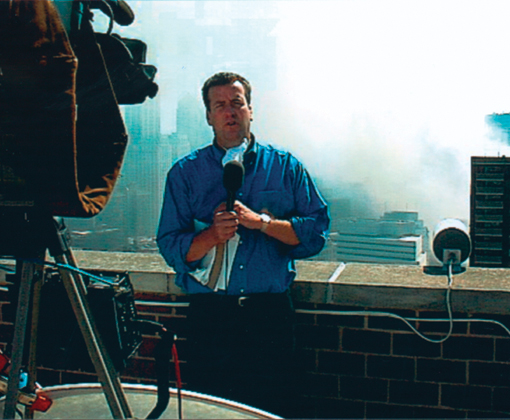
After four years, Johns’ track scholarship ran out, but he still needed a few hours of class credit in order to graduate. He also needed a job to pay his tuition. First, he worked at now-defunct WKFD Radio, broadcasting the hourly news, and then moved to WKEE Radio, where one of his more interesting assignments caught the attention of Bob Brunner.
One night, Johns was the emcee of a station-sponsored showing of the cult movie The Rocky Horror Picture Show. According to Brunner, who was doing a feature on the movie showing, Johns showed remarkable aplomb interacting with the wildly costumed audience participants. Brunner approached Johns and told him that if he was interested in television to contact him. He did so shortly thereafter, and Brunner hired him on the spot.
After about 18 months at WSAZ, Johns left for Charlotte, N.C., where he worked for an ABC affiliate for a few years before moving to Washington, D.C., in 1983. At first, he worked at a local NBC station, WRC-TV, where he won an Emmy for a story on the violent tactics the Nation of Islam used in ridding a district neighborhood of drugs. Then, Tim Russert hired him to be an NBC congressional correspondent, where he covered Capitol Hill for more than 10 years.
Johns credits Russert as the one who shaped his career in many ways.
“He taught me so much about politics,” Johns says. “He taught me how to ask the hard questions without seeming to be disagreeable.”
According to Johns, even his methodical work habits reflect Russert’s own. Russert, an attorney, also shaped Johns’ career by encouraging him to attend American University’s law school, where Johns earned a law degree.
“I use my degree every day,” Johns says. “The most important thing about law school is that it teaches you a way of thinking and looking at every situation and analyzing it for the facts.”
During his NBC years, Johns often covered the White House in the morning for the Today show, spent his weekdays on Capitol Hill and worked on weekends for MSNBC and Nightly News. Although domestic news coverage has dominated his career, he did accompany Hillary Clinton on a seven-nation tour of Europe, travel to Haiti to report on that country’s transition from a dictatorship to a democracy in 1994 and cover former President Bill Clinton’s 1996 tour of Africa. Domestically, Johns has covered the impeachment hearings of President Clinton, the anthrax mailings following 9/11 and the Beltway sniper attacks, and broke the story of Tom DeLay’s indictment.
In 2004, Johns left NBC to join the CNN news team as a congressional correspondent reporting on government accountability, waste and fraud for Anderson Cooper 360°. Johns returned to West Virginia for in-depth reporting on the Sago Mine disaster in 2006 as part of Anderson Cooper’s Planet in Peril series. In 2008, he was deeply involved in reporting the lead-up to the presidential election, and he covered election night as well. Interestingly, Johns says 2008 was the first time he’d had numerous conversations with every candidate on the ticket.
Awards have followed Johns throughout his career. A former president of the Radio and Television Correspondents Association, he has garnered two National Association of Black Journalists Salute to Excellence Awards, is a member of the West Virginia Broadcasting Hall of Fame and was a member of CNN’s Emmy Award-winning coverage of the 2006 election night. He is also a member of the Society of Yeager Scholars Board of Directors at Marshall University, the Howard University School of Communications Board of Visitors and the D.C. Law Students in Court program.
When Johns isn’t on Capitol Hill, he’s a gym rat, staying in shape for his spot on the GE corporate track team, where he still throws the shot and the discus. He also scuba dives and bicycles, but much of his down time is spent with his two young children.
Both Callebs and Johns say it’s a privilege to report the news. They also agree that the start they got at Marshall was invaluable. There was a moment, Johns recalls, when both he and Callebs were in New York for the first anniversary of the 9/11 attacks.
“I looked at Sean and thought, ‘Wow! That’s pretty amazing. Two Marshall guys here at the same time.’”
Amazing indeed.

